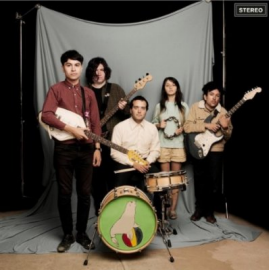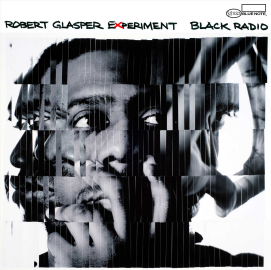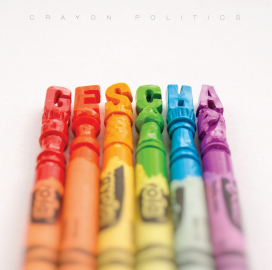Sea Lions
Everything You Always Wanted to Know About Sea Lions But Were Afraid to Ask
With jangling guitars, shimmering production and a bold title, the Sea Lions’ long-awaited debut LP on Slumberland Records Everything You Always Wanted To Know About Sea Lions But Were Afraid to Ask is full of endearingly honest pop songs about boredom, idleness and yearning for a way out of a mundane existence. The album stands as a rallying cry for the youth of the world, as lead singer Adrian Pillado crams 15 of his heartbreaking and introspective songs into a time frame of only 29 minutes. Like The Pains of Being Pure at Heart, Sea Lions have hints of guitar-pop inspired by traces of C-86, however, unlike their label-mates, they lack focus. This is the overall downfall of this promising debut, as the short LP lacks something to truly hold on to. There are indeed some lovely individual songs here, with “As Times Change” and “Grown Up” establishing a band that is confident in their sound. However, the band’s forever young vision is too knowingly coy, as Sea Lions fail to muster the ambition needed to push these themes further, at least on their debut.
Robert Glasper Experiment
Black Radio
At the intersection of acoustic jazz and smooth hip hop rests Robert Glasper. The 33-year-old pianist’s latest project, Robert Glasper Experiment, embraces a fundamentally collaborative philosophy – the Experiment’s core jazz combo quartet of Glasper, Casey Benjamin, Chris Dave and Derrick Hodge feature additional artists on nearly every single track of their debut, Black Radio. The laid-back atmosphere created by Glasper allows for natural forays into soul, funk and R&B that are chockfull of seemingly improvised moments. The record is tied together by a strong feeling of organic creation. Nothing is forced, nothing is out-of-place, but there doesn’t seem to be much urgency either. Rather than challenging such an impressive assembly of artists to make something memorable and exciting, Glasper opts to create what often feels like a timid throwback record. There are moments like “Afro Blue”—sung by Erykah Badu—that manage to feel both fresh and lived-in, but Black Radio is marred by a terminal lack of ambition that renders it little more than virtuosic Starbucks-ready adult contemporary.
Field Music
Plumb
Field Music, made up of brothers David and Peter Brewis, hails from across the pond and they certainly sound like it, embodying the easy-going, pop experimentation in the UK. While there is something innately familiar about their smooth vocals, the amalgamation of different instrumentation give each track its own voice. It’s often difficult to distinguish between the songs on alt-pop albums since each one seems to settle into a similar rhythm of acoustic here, synth there and vague lyrics over yonder, but the Brewis brothers allow each song to have one stand-out element, like the church bells at the start of “A Prelude To Pilgrim Street.” Granted, “New Town” seems to go on for a minute or two too long, but overall Field Music’s latest album makes for an ever-changing half hour listen that could easily be enjoyed on loop.
Gescha
Crayon Politics
As far as I can tell, the phrase “crayon politics” is actually a clever metaphor for racism. Otherwise, I’m not sure how to label this album: the background vocals sometimes give it a very bluesy feel, the second track begins with very gospel-reminiscent strains, “Love Pirates” begins in exactly same way as “Pumped Up Kicks” by Foster the People and the title track sounds like what would happen if Seal decided to rap. All in all, I’m baffled. But I think it’s in a good way. It thankfully lacks the choking profanity I’ve come to associate with rap, and the lyrics are surprisingly thought-provoking at times: “This life ain’t perfect, but at least we’re here.” (“Breathe”). In fact, “Love Pirates” and “Slow Build” are straight-up catchy. What’s up, rap. I think we might be friends after all.






